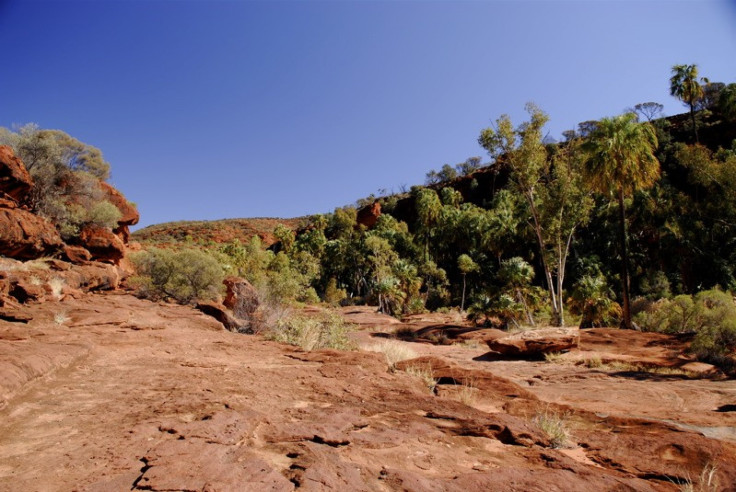Earth’s Oldest Fossils Hint at Similar Life on Mars

A team of Australian and British geologists has uncovered fossilized, single-cell organisms that supposedly were able to thrive in an oxygen-free world nearly 3.4 billion years ago -- and are the oldest known fossils on earth.
Their claims, if substantiated, confirm that life evolved on earth surprisingly soon after the Late Heavy Bombardment, a period of mass destruction in which a young earth was bombarded with waves of asteroids, heating the surface to molten rock and boiling the oceans into an incandescent mist.
The bombardment ended around 3.85 billion years ago.
The newly found fossils, discovered near an isolated watering hole in the middle of the Australian Outback, belonged to primitive bacteria that lived on earth at a time previously thought to be too inhospitable for life.
Scientists argue that the primitive microbes used sulfur instead of oxygen to generate energy from food.
If this is true, the findings support the idea that similar life forms could exist on other planets where oxygen levels are low or non-existent.
Life on Mars?
Could these sorts of things exist on Mars? It's just about conceivable, Martin Brasier of Oxford University, who worked on the team, said in a statement released with the study. This evidence is certainly encouraging, and lack of oxygen on Mars is not a problem.
Other scientists are excited about the find as well. David Des Marias, an astrobiologist at the NASA Ames Research Center, told The Washington Post: I mean, wow, we now know that sulfur-based metabolism happened very early on Earth. And early Mars had water and sulfur. It shared in many ways the environment of the early Earth. This gives us confidence that looking for these types of organisms on Mars is a good strategy.
Beaches the Setting for the Origin of Life?
In the study, published on Sunday in the journal Nature Geoscience, Brasier's team explained that the tiny fossils were discovered in rocks that were originally formed in shallow seas near the coast.
The fossils were identified at Strelley Pool, a remote location of the Pilbara, a dry region about 60km west of Marble Bar.
The sandstones there were laid down in what would have been a shallow-water beach or estuary.
They were preserved between the quartz and sand grains in some of the oldest shoreline known on earth in some of the oldest sedimentary rock ever discovered.
This suggests that beaches were likely the key habitat where the earth's first lifeforms thrived.
David Wacey, of the University of Western Australia, told the Independent:
The environment in which the microfossils were found is important - it extends the record of life in shoreline or beach-like environments by about 200 million years. This suggests that beaches could have been the setting for the origin of life itself.
The discovery gives good, solid evidence for life over 3.4 billion years ago. It confirms there were bacteria at this time, living without oxygen, Wacey adds.
Early Life
The earth is estimated to be about 4.5 billion years old; however, the planet's hostile environment was previously thought to be inhospitable for life until about 3.8 billion years ago.
While previous studies have indicated the presence of similar microfossils in 3.5 billion-year-old rocks, the finds have been disputed.
The latest microfossils were subjected to exhaustive tests that confirmed that they were once living cells and not just the product of non-living chemical reactions.
Also, because they were discovered in rock sandwiched between layers from two recorded volcanic eruptions, the fossils' date of origin could be pinpointed within a few tens of millions of years.
Brasier, co-leader of the study, adds that sulfur bacteria are still common today:
Sulfur bacteria are found in smelly ditches, soil, hot springs, hydrothermal vents -- anywhere where there's little free oxygen and they can live off organic matter.
Researchers say this may be the closest that science will ever get to the mysterious origin of life on earth -- and proof that life may exist on other planets.
READ ALSO:
Life-Sized Noah's Ark to Be Centerpiece of New Creationism Theme Park
'Perfectly Preserved' Baby Mammoth Discovered by Reindeer Herder in Russian Arctic
SpaceX November Launch Date Could Signal Accelerated Private Space Flight Schedule
© Copyright IBTimes 2024. All rights reserved.






















